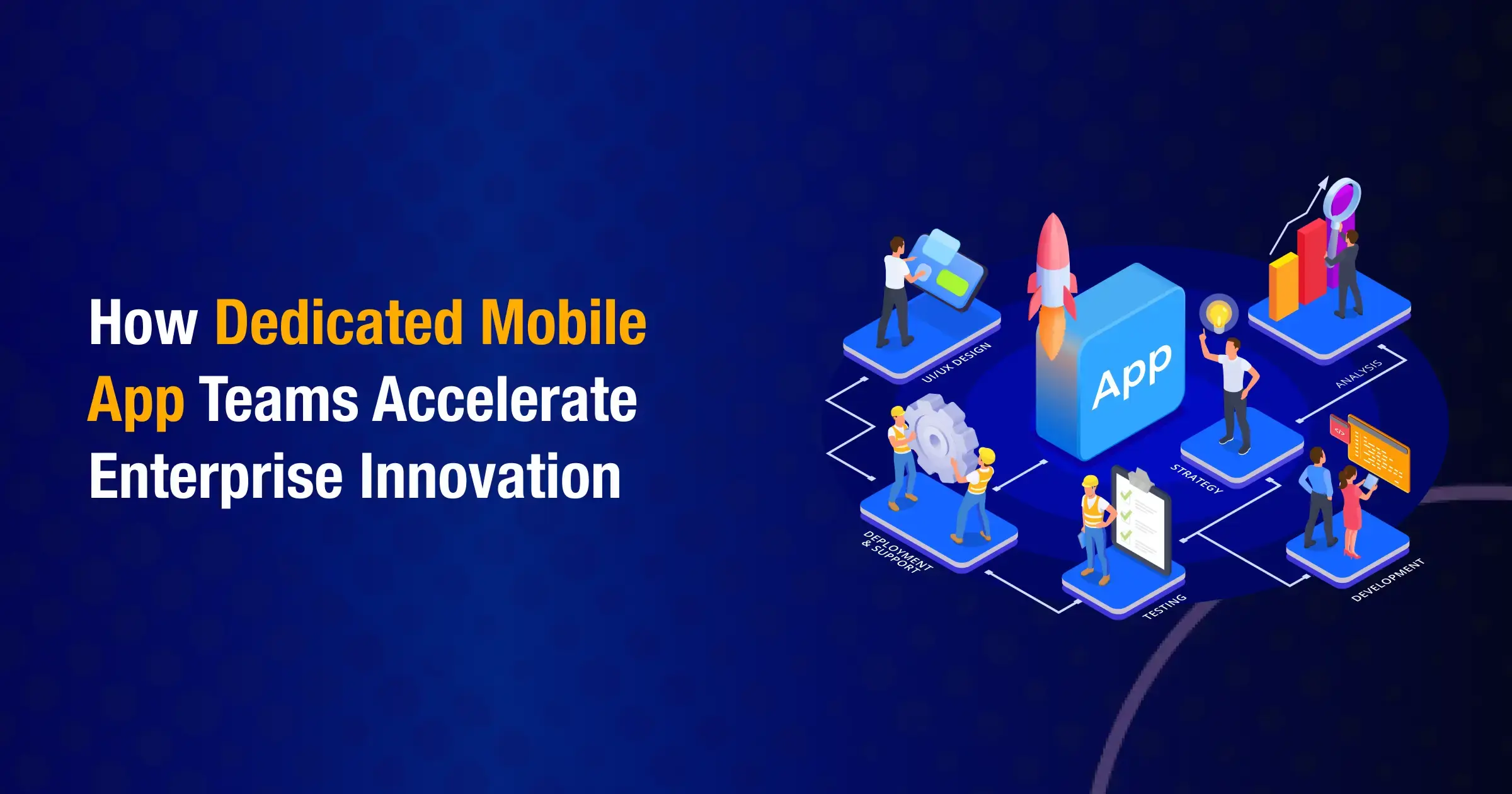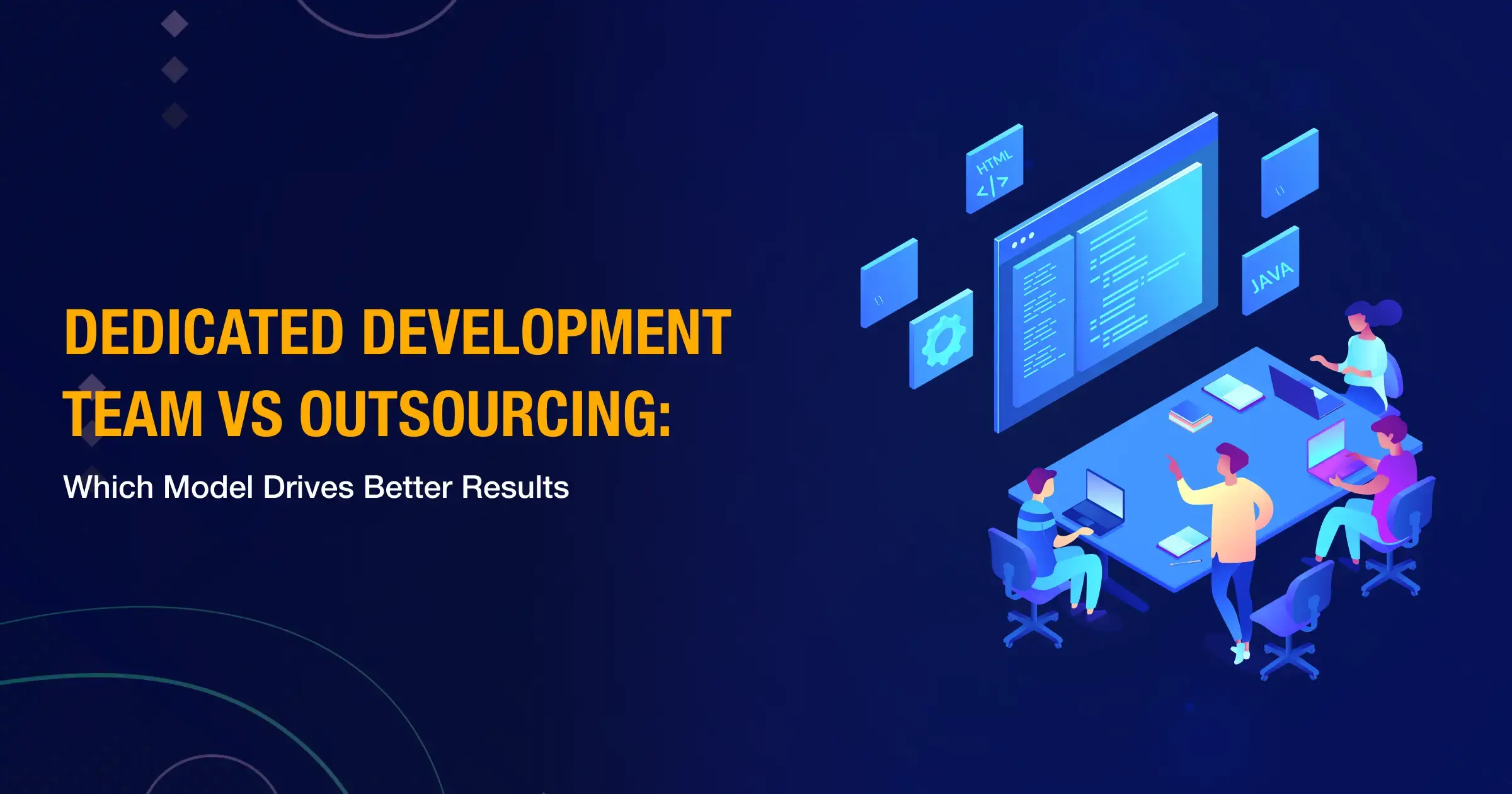Posted by Tech.us Category: software product development saas
We are a team of technology experts who are passionate about what we do. We LOVE our customers. We LOVE technology. We LOVE helping you grow your business with technology.
Artificial Intelligence Services
Machine Learning Solutions
Generative Al Companies
Robotic Process Automation
Natural Language Processing
Chatbot Development Services
Enterprise AI Solutions
Data Annotation Services
MLOps Solutions
IoT Solutions
Data Mining Solutions
Computer Vision Services
Custom LLM
AI Agents
Agentic AI Development
Custom Software Development
Enterprise Software Solutions
Software Development Services
Website Development Services
Software Product Development Services
SaaS Development Services
Mobile App Development Services
Custom Mobile App Development
IOS App Development
Android App Development
Enterprise Mobile App Development
Hybrid App Development
Software Development Outsourcing
Dedicated Development Team
Staff Augmentation Services
IT Outsourcing Services
Data Analytics Services
Data Analytics Consulting Services
Business Intelligence Solutions
Software Modernization
Application Modernization Services
Legacy System Modernization
IT Security Solutions
Cyber Security Solutions
Cyber Security Managed Services
HIPAA Compliance Cyber Security
Cloud Application Development
Custom Web Application Development
Cloud Consulting Services
AWS Cloud Consulting Services
Enterprise Cloud Computing
Azure Cloud Migration Services

POPULAR POSTS
01
How To Improve Document Processing Accuracy Using Document AI
02
The Guide to Chatbot Development & What to Seek while Hiring a Company
03
Understanding Natural Language Processing: The What? The How? and The Why?
04
11 Proven Benefits of AI Chatbots for Businesses in 2025
05
A Complete Guide to SaaS Product Development
Posted by Tech.us Category: software product development saas

How can a business stay ahead when markets, technologies, and customer needs evolve in weeks, not years?
That’s the reality that is prevailing today. What worked last quarter might already be outdated. Plans that looked rock-solid six months ago suddenly feel like a burden. So, what’s the real challenge here?
It’s not just about having a plan. It’s about having the flexibility to change the plan without sinking the ship.
Now imagine this:
What do you do?
Do you wait months to hire new talent? Too slow.
Do you reassign your already overloaded team? Risky.
This is exactly where a dedicated development team steps in.
A dedicated team gives you something businesses need but rarely achieve which is strategic flexibility. It’s like having an extension of your own company, fully ready to adapt with your priorities and your roadmap.
Rigid models force you to stick to a plan even when the world changes. But flexible models like dedicated teams allow you to shift gears quickly.
Isn’t this what every business wants, which is a way to scale fast without losing control?
Absolutely. And it’s not just about speed, but about control with adaptability built into the development process.
So right from the beginning, let’s be clear. If modern businesses are playing on shifting ground, the question isn’t whether you need adaptability. The real question is: Do you have the right team model that delivers it?
A dedicated development team for software development is like having your own in-house squad, but without the overhead. They’re fully focused on your goals, aligned with your vision, and flexible enough to match changing priorities.

A dedicated development team is not just a bunch of remote coders you borrow for a few weeks. It’s a long-term, committed partnership where the team operates almost like your own employees, but with the added advantage of flexibility, scalability, and access to wider expertise.
Now, you might be wondering:
So, is it staff augmentation?
Not quite. With staff augmentation, you’re basically filling skill gaps by hiring individuals who plug into your existing software development team. They work for you, but only as an added resource.
So then, is it software development outsourcing?
Again, not exactly. With software development outsourcing, you usually hand over an entire project to an external company. They take the brief, build, and deliver it back. You get less day-to-day say in how things are executed.
A dedicated team, however, sits right in the middle. It’s yours in spirit and focus, but it still comes with all the efficiencies of outsourcing.
Here’s why it works:
Think of it this way: If outsourcing is like hiring a contractor to finish your project, then a dedicated team is like bringing in a specialized, loyal squad that grows with your business.
And that’s its speciality as it’s not just about writing code but about creating an adaptable, strategy-first model where flexibility and commitment walk hand in hand.
Because in today’s market, the ability to pivot without chaos isn’t nice to have. It’s survival. And a dedicated team makes that survival possible.

Let’s flip the question for a moment. Instead of asking why companies need a dedicated development team, what if we ask: what exactly do they miss out on when they don’t have one?
The truth is, they miss out on quite a lot.
Markets shift fast. One moment your customers want simple dashboards, the next they expect AI-driven personalization baked right in.
Now ask yourself:
If not, you’re not adapting but reacting to it. And in today’s competitive landscape, reacting is too slow.
Here’s the thing no one likes to admit: in-house setups are expensive. Recruiting, onboarding, training, retaining, it all adds up.
Without a dedicated development team, you don’t get the flexibility to scale. Which means:
So the real question is: are you financing stability, or are you paying for stagnation?
Every business has that list of “big ideas” sitting in the backlog. Maybe it’s a new custom SaaS solution. Maybe it’s expanding your product line. Or maybe it’s experimenting with automation and machine learning services.
Here’s the problem: without bandwidth, those projects never leave the whiteboard. Meanwhile…
Lost opportunity is invisible, but it costs more than you think.
Overloaded teams do not just innovate. They patch. They fix. They ship just enough to keep things afloat.
But innovation? That requires extra capacity, specialized skills, and freedom to try new things. Without a dedicated development team, you miss the chance to:
So what happens when your product vision doubles in scope overnight, but your team can’t?
That’s when momentum slips away. And once you lose momentum, it’s painfully hard to get back.

Here’s the question that most of the businesses have concern: Can my team change direction when the market does? Because the reality is simple: no strategy survives the first big shift. And that’s where a dedicated development team shows its true value. Let’s explore how.
When customer needs change mid-project, rigid models collapse under the pressure. But a dedicated development team can pivot development without losing momentum. They do more than just follow instructions as they align with your vision continuously.
There are seasons when demand suddenly spikes. Product launches, holiday traffic, or rapid growth phases. With a dedicated team, scaling isn’t a headache, it’s a built-in advantage.
Bringing in innovations like bespoke software solutions or cloud computing services often overwhelms in-house teams. Dedicated teams, however, are structured to embrace new tech quickly.
In competitive industries, speed is survival. Every delay equals opportunity lost. Dedicated teams shorten the path from idea to execution.
Outsourcing often feels like a trade-off: you gain capacity but lose control. With dedicated development teams, you don’t compromise. You get both.
So, to answer the big question: Can an in-house team match that speed and adaptability? In most cases, no. And that’s exactly why businesses today are leaning heavily on the dedicated model.
To be honest, businesses do not fail because of lack of ideas but because of poor planning, bad timing, or not seeing what’s coming next. That’s where artificial intelligence services step in.
But here’s the twist, AI can tell you what’s ahead, yet it can’t build the product or change direction on its own. You need people for that. The right people. A dedicated development team.
So, what does AI have to do with your dev team?
Good question. AI brings prediction; dedicated teams bring execution. Imagine it like this:
AI flags a potential three-week delay because of resource bottlenecks. Useful, right?
But unless you have a team agile enough to redistribute tasks, reschedule sprints, or shift focus, that prediction is just a warning sign on your dashboard.
When both work together:
That’s real strategic flexibility.
Take planning for example. Traditional models commit to long-term schedules that can easily collapse when markets shift. However, with robust machine learning services, you can get insight into demand spikes, feature priorities, and even cost overruns. But with a dedicated team, you can react on the ground by reassigning developers, accelerating certain modules, or shelving features that no longer matter.
Isn’t that exactly what modern businesses need? Data plus decisive action.
How often have you seen teams overstaffed in one area but gasping for help in another? AI eliminates the guesswork by showing where resources should go. Still, balance doesn’t happen on its own. Dedicated teams make those adjustments immediately because they’re already integrated with your workflows, not stuck on the outside like a vendor.
Every project manager knows the sinking feeling of discovering a risk too late. AI changes the timing, it shows risks before they materialize. Dedicated teams change the outcome as they fix direction before delays or overruns sink the project. That’s proactive strategy, not reactive panic.
So what’s the takeaway? AI is foresight. A dedicated development team is follow-through. Put them together and you don’t just plan smarter, you execute smarter, too.
Every business leader faces the same challenge: choosing the right team model for custom software development or SaaS product development. Should you build an in-house team? Outsource the whole project? Maybe just add a few people through staff augmentation? Or go all-in with a dedicated development team?
Let’s be real as there’s no one-size fits all solution. But here’s the catch: each model brings its own trade-offs. And if you’re aiming for both agility and control, only one option consistently checks those boxes.
Take a quick look at in-house vs. dedicated teams:
|
Features |
In-House Team |
Dedicated Development Team |
|
Control over Team |
Maximum control since employees work directly under you |
High control, with flexibility in structure; close alignment without the burden of direct employment |
|
Cost Structure |
Expensive due to salaries, benefits, office space, training, infrastructure |
More cost-efficient; you pay for services, not overhead, with predictable pricing models |
|
Hiring & Onboarding |
Lengthy recruitment cycles; limited to local talent pool |
Fast setup via provider; access to global talent pool with diverse expertise |
|
Scalability |
Difficult and slow to expand or shrink the team; tied to HR processes |
Quick to scale up or down depending on project requirements or demand spikes |
|
Culture Alignment |
Naturally aligned with company culture and values |
Alignment possible but requires onboarding and communication practices to build shared culture |
|
Access to Niche Skills |
Limited to what you can find and retain locally |
Access to specialized skills (AI, cloud, SaaS, etc.) through established providers |
|
Flexibility in Projects |
Lower flexibility due to employee contracts and rigid capacity |
High flexibility; teams adapt to pivots, technology shifts, and strategy changes quickly |
|
Time to Market |
Slower; hiring and training delays speed of delivery |
Faster launch cycles due to ready-to-go experts and agile practices |
|
Risk Management |
Risks absorbed internally; harder to mitigate unexpected tech or scope changes |
Shared responsibility with provider; smoother adjustments to risks identified by AI or planning tools |
|
Long-Term Commitment |
Best for companies needing stable, ongoing operational roles |
Ideal for businesses needing agility with long-term product focus but leaner costs |
|
Innovation Capacity |
Can stagnate if team bandwidth is low and resources are stretched |
High potential; providers bring fresh perspectives, diverse tech knowledge, and innovation-driven culture |

When people hear outsourcing, staff augmentation, and dedicated development teams, they often think they’re interchangeable. They aren’t. Not even close.
Outsourcing is like saying, “Here’s the project, call me when it’s done.” You hand over the keys, someone else drives. It works when you want something simple with little involvement, but if your business environment changes mid-project, you’re stuck. The vendor isn’t built to adapt with you.
With demands spike for enterprise software solutions, staff augmentation sounds pivotal but it’s different. It’s like borrowing a couple of extra hands when your current software development team is overwhelmed. Need two backend devs for six months?
Great. They’ll sit inside your workflows and report to you. But here’s the catch: they’re hired to cover a gap, not to own the bigger picture. So yes, it solves a short-term headache, but it doesn’t build long-term flexibility.
Now compare that with a dedicated development team. The focus changes completely. This is not about plugging holes or outsourcing the whole project.
It’s about having a committed team that belongs to your product vision. They work as part of you, not apart from you. They align with your strategy. They adapt when you pivot. They scale when demand spikes.
And, this one’s big, they continue to add value long after a single project wraps.
Which leads us to the important question: What’s the difference between a dedicated team and just building in-house? You actually get more similarities than differences, they feel like your employees, but without the overhead, the fixed people costs, and the endless hiring cycles.
Here’s how it plays out in reality:
At the end of the day, it all comes down to one truth: adaptability is survival. Markets will change, customer needs will twist, technologies will keep evolving. The question isn’t if, it’s when. So what do you have in place when it happens?
Think of it this way. While some companies are busy redrawing their roadmaps, fixing bottlenecks, or rushing to hire talent, you could already have a dedicated development team sprinting toward the next opportunity.
That’s the real advantage. It’s not just about having extra people. It’s about having a structure that bends when everything else breaks.
Because here’s what you avoid:
And here’s what you gain: clarity, speed, and the confidence that your product never slows down even when your market shifts.
So let’s be blunt. You can either keep building slowly, relying on rigid internal cycles, or you can embrace a smarter model. Explore the possibilities of a dedicated development team, and if you’re still weighing options, software development outsourcing is a natural starting point.
The choice isn’t about cost. It’s about staying relevant. Which side of that equation do you want to be on?
A dedicated development team typically refers to a group of skilled professionals who work exclusively on your project, which is almost like in-house employees. But the key difference here is that you can avail their service without the overhead.
The dedicated team simply integrates with your existing workflows. It follows your roadmap and adapts quickly to your business’s changing priorities. Simply put, they feel like your own team while staying managed by a reliable provider.
Think of software development outsourcing as handing off the entire project and waiting for delivery. You get results, but you have comparatively less day-to-day control.
On the other hand, a dedicated team works alongside your long-term goals and vision as you guide the strategy, you stay in control, and they scale with your business. This happens all the while still giving you the efficiency of outsourcing.
A dedicated development team is ideal when:
To build an in-house team, it requires salaries, benefits, office space, onboarding, and long hiring cycles. As against it, a dedicated development team skips most of that as you get predictable pricing and global talent and also the ability to scale up or down depending on demand.

Top SaaS Implementation Challenges and Proven Ways to...

How Dedicated Mobile App Teams Accelerate Enterprise...
Get Free Tips
NEWSLETTER
Get Free Tips
Submit to our newsletter to receive exclusive stories delivered to vou inbox!
Thanks for submitting the form.
RECENT POSTS

What Are the Key Enterprise Software Development Considerations for...

7 Qualities to Look for in a Custom Enterprise Software Development...

How to Find the Best Custom Enterprise Software Development Company in 2026

5 Common Cloud Migration Mistakes and How to Avoid Them

Dedicated Development Team vs Outsourcing: Which Model Drives Better...
We are a team of technology experts who are passionate about what we do. We LOVE our customers. We LOVE technology. We LOVE helping you grow your business with technology.
Our Services
Talk to US